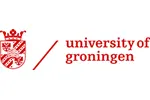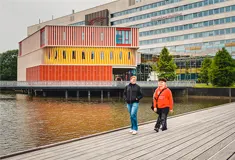Ana Quintana, Mexico, Strategic Innovation Management
I gained a Bachelor's degree in Management & Marketing in Mexico City before I came to the Netherlands to undertake my Master's programme. During my Bachelor's studies, I spent a semester in Canada and I wanted to expand my international (study) experiences before starting work. I was keen to focus on innovation which is not usually offered in Mexico hence the combination of Innovation and Strategy in one programme directed me to Groningen.
My Master's thesis dealt with Innovation in family businesses and I now benefit from the intense research modules offered during the programme. Now I am working as a Promotion Manager in charge of the several customer loyalty programs offered by one of Mexico's biggest hotel chains. Although the Master's program was rather theoretical, I feel that it prepared me very well for my current job.
There was nothing about Groningen that I did not like: the city is just beautiful. I especially enjoyed going everywhere by bike, the variety of offers for students and, of course, the Queensday (now Kings Day) celebrations. Groningen has everything to make (foreign) students feel at home.
Looking back a year after my return to Mexico, I feel that I especially enjoyed getting to know Dutch culture. In addition, the courses offered and the beauty of the city made my stay in Groningen an unforgettable experience. If I had to choose a Master's programme again, I would be on a flight to Groningen.


























